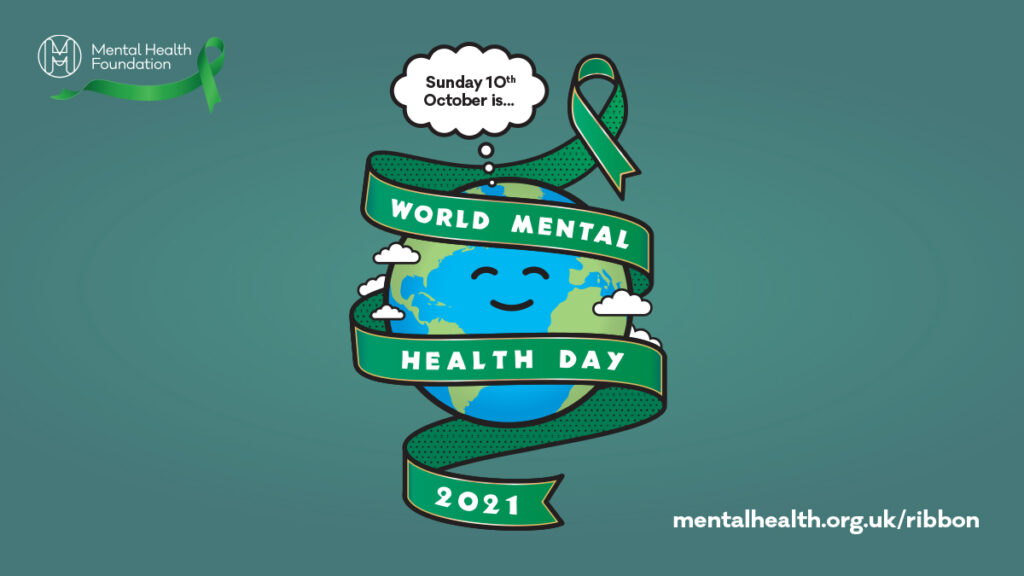
by Kate McLaughlin
World Mental Health day – meeting the challenges of an unequal world
Once again it is the time of year for us to acknowledge the arrival of the annually observed World Mental Health Day. This Sunday, the 10th of October, charities and organisations across the world are united in awareness and discussion around the nuances of mental health, and concern for the prevalence of mental illness. As in other years, the World Federation for Mental Health has stipulated a specific theme to observe. The theme for 2021 is mental health in an unequal world.
At JSA Psychotherapy, we are practiced at recognising and treating the various forms of mental illness that are present within our community, and have offered suggestions in the past for bolstering an individual approach to better mental wellbeing. As such, we have been able to recognise certain patterns over the course of our time in operation. Most often, we identify that our clients are suffering from mental health issues from within the more common groupings.
These include depressive disorders, where the mind shuts itself off from experiencing emotions, and particularly feelings of hope or possibility. It does this because to do so is too painful under the circumstances. Combatting this generally requires a reserve of trust and faith in the future, as well as a reason to overcome the depression.
Besides depression, the other primary cases we treat are those of anxiety disorders and post-traumatic stress disorder. Both are related to trauma, often complex trauma. Exposure to overwhelmingly distressing and terrifying experiences, and/or the looming expectation of them, leaves us feeling unable to cope with the potential to suffer similar experiences again in future. As such, we may develop a variety of adverse coping strategies to withstand these feelings.
Traumatic incidents will typically also leave fragmented remnants of the experience fully unresolved. This obviously contributes to anxiety and depression, by making you feel frequently or perpetually hopeless, numb and/or unable to cope. However, unresolved trauma also has adverse developmental effects. Through our work with the ChildTrauma Academy and their Neurosequential Model of Therapeutics, we are aware that cognitive and social functions critical to healthy functioning as an adult are unable to develop fully while hindered by complex trauma.
As such, the more trauma a person suffers before the age of 26, the more likely they are to suffer from the inhibited development of essential components of higher thinking, emotional regulation, memory, learning function, social interaction and emotional attachment. Worse still, this phenomenon is exponentially more severe, the earlier in life that trauma occurs.

To relate this back to today’s theme, social inequality obviously affects the likelihood and severity of single event and complex trauma, and by extension, the threat that it will occur in future. Likewise, the more marginalised or isolated an individual is, the more their ability to cope with and recover from such trauma becomes, exacerbating their impact further. To relate this to the lived experience of people within the UK alone, systemic poverty, persecution and predation of all kinds serve to concentrate the trauma –and threat thereof- that people experience in intersecting and compounding ways, while debilitating the networks of support and individual resources necessary to withstand them.
Despite this, the majority of psychotherapeutic models for addressing trauma recovery all work within the framework of healing the client from past events that have so far gone unresolved, while preparing them for the future. Even the name post-traumatic stress disorder denotes a trauma that has now concluded. Crucially however, when the sources of trauma are those born from material inequality, that trauma is often ongoing.
As such, anxiety and depression responses may be considered as active coping mechanisms that the body and mind have in place for survival. The challenge of supporting a recovery from them as symptoms of ongoing external circumstances then, becomes much more complex and difficult to address.
This isn’t to say that there is nothing that can be done about them, but on a day such as this it serves to highlight the disparity that issues of social inequality construct, as well as how they form the underpinning core of everything related to the care and support of mental health issues.
For our part as a psychotherapy service, we are able to expertly and compassionately diagnose issues of mental illness and treat them with bespoke clinical support to the best of our ability. Within our practice specifically, this support is underpinned by trauma-informed methodology that acknowledges the developmental factors of complex trauma touched upon above.
If you are curious to learn more about our models of clinical psychotherapy, have a question for us, or would like to get in touch to procure our services, please contact us on 01282686345 or at office@jsapsychotherapy.com.


